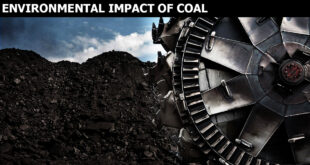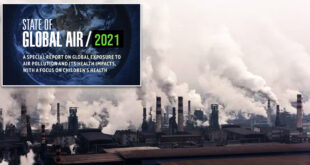Context The outcomes of COP29 in Baku concerning the New Collective Quantified Goal (NCQG) for climate finance have drawn criticism for falling short of addressing principles of climate justice and equitable burden-sharing. Key Takeaways from COP29 Origin of NCQG: Conceptualized at COP21, the NCQG builds on the $100 billion annual …
Read More »Environmental Studies
Oilfields Regulation Bill
Context The Rajya Sabha recently approved the Oilfields (Regulation and Development) Amendment Bill, 2024, aiming to enhance efficiency in oil and gas exploration across India. Rationale for the Bill Addressing Energy Needs: Aims to bridge the gap between domestic oil and gas production and consumption. Improving Business Environment: Modernizes outdated …
Read More »INC-5 Outcomes and Implications: Addressing Global Plastic Pollution
The fifth Intergovernmental Negotiating Committee (INC-5) meeting in Busan, South Korea, aimed at formulating a global treaty to combat plastic pollution, ended without a conclusive agreement. The lack of a binding treaty has sparked concerns over the effectiveness and inclusivity of the ongoing negotiations. Key Outcomes and Challenges Lack of …
Read More »Global Plastic Treaty: Overview and Key Issues
The ongoing discussions within the Intergovernmental Negotiating Committee (INC-4) of the United Nations Environment Programme (UNEP) focus on establishing a global treaty to address plastic pollution. The treaty aims to provide a comprehensive framework to reduce plastic waste, with particular attention to creating fair conditions for informal waste workers. What …
Read More »Climate Talks: Challenges and Issues
Context: The recent COP29 summit in Baku concluded with a lackluster agreement on climate finance, raising serious concerns about the trajectory of global climate negotiations. Challenges in Climate Negotiations Insufficient Financial Commitments Developed countries have pledged only $300 billion annually until 2035, which falls significantly short of the estimated $1 …
Read More »Overview of Global Soil Conference 2024
Purpose: Organized by the Indian Society of Soil Science (ISSS) in collaboration with the International Union of Soil Sciences (IUSS), the GSC aimed to address critical challenges related to sustainable soil and resource management. Theme: Caring Soils Beyond Food Security: Climate Change Mitigation & Ecosystem Services. Key Focus Areas: Recognition …
Read More »Fossil Fuel Non-Proliferation Treaty (FF-NPT)
Context At COP29, the Fossil Fuel Non-Proliferation Treaty (FF-NPT) gained significant momentum. Inspired by the Nuclear Non-Proliferation Treaty, this initiative seeks to regulate fossil fuel production as a targeted approach to combat climate change. Activists and countries are increasingly advocating for its adoption to address the climate crisis effectively. Need …
Read More »Shale Gas in Jharkhand
Context: Recent Findings: A study has revealed promising potential for shale gas generation in the South Karanpura coalfield in Ramgarh district, Jharkhand. The assessment was carried out using Rock-Eval pyrolysis, a technique that evaluates the hydrocarbon content and thermal maturity of sedimentary rocks, primarily for petroleum and shale gas exploration. …
Read More »State of Global Water Resources Report
Context (DTE): The World Meteorological Organization (WMO) published the State of Global Water Resources Report, highlighting that 2023 marked the driest year for global rivers. Contributing Factors Increased Water Demand: The report pointed out that growing agricultural and industrial demand placed added pressure on river systems, worsening the already low …
Read More »Elephant Census
Context: Recent data from an unreleased elephant census, which incorporated new counting techniques, has revealed a decline in elephant populations across several regions of India, particularly in southern West Bengal, Jharkhand, Odisha, and Kerala. Previous Counting Methods Total Direct Count Up until 2002, India used the “total direct count” method, …
Read More »National Agriculture Code (NAC)
Overview: The Bureau of Indian Standards (BIS) has developed the National Agriculture Code (NAC), setting comprehensive guidelines for the agricultural sector. Purpose: The NAC provides a standardized framework for the entire agricultural process, akin to the National Building Code and National Electrical Code. Structure of NAC: General Principles: These apply …
Read More »EnviStats India 2024
Context: The Ministry of Statistics and Programme Implementation (MoSPI) has released the 7th consecutive edition of “EnviStats India 2024: Environment Accounts,” aligned with the System of Environmental-Economic Accounting (SEEA) Framework. Findings From 2000 to 2023, the number of Total Protected Areas saw an increase of approximately 72%, while the area …
Read More »Forest Cover of India
India State of Forest Report (ISFR) The Union Minister of State for Environment, Forest, and Climate Change presented the India State of Forest Report of 2021 in Lok Sabha, amidst contradictions with Global Forest Watch data. ISFR: An assessment of forest cover and tree cover (small patches outside forests) conducted …
Read More »Chromium Contamination of Groundwater
Context: The National Green Tribunal has instructed the Central Ground Water Board (CGWB) to investigate chromium contamination in the groundwater of Sukinda Valley, Odisha. Key Details: Location: Sukinda Valley in Odisha is home to 97% of India’s chromite ore deposits. Chromium Characteristics: Chromium is a shiny, hard, brittle metal with …
Read More »Climate Policy of India
Context: India’s Supreme Court, in its landmark judgment in M.K. Ranjitsinh and Ors. Vs. Union of India & Ors., has introduced a significant new dimension to the country’s climate change jurisprudence. SC Verdict The Supreme Court recognized the right to “be free from the adverse effects of climate change” as …
Read More »Environmental Impact of Coal
Context: India’s coal consumption has surpassed that of North America and Europe, highlighting the significant environmental impacts associated with its usage. Coal Mining: Habitat Destruction and Contamination: Coal mining devastates natural habitats and pollutes the environment, affecting humans, animals, and plants. It leaves permanent scars on the landscape. Mine Wastes: …
Read More »Non-Inclusion of Heatwaves in Notified Disasters
The ongoing severe heatwave across the country has reignited discussions about officially recognizing heatwaves as disasters under the Disaster Management Act, 2005. How India Manages Disasters Constitutional Context There is no mention of disasters in the Constitution of India. Legislative Framework Disaster Management Act (DMA) 2005: Enacted following the 1999 …
Read More »Nord Stream Leaks
❖ A new study has revealed the fate of methane released from the September 2022 explosions that damaged the Nord Stream pipelines in the Baltic Sea. Nord Stream Pipeline Description: The Nord Stream network comprises offshore pipelines (Nord Stream 1 and 2) that supply natural gas to northern Europe. These …
Read More »The State of Global Air Report
Background: The State of Global Air Report is a collaborative assessment by the US-based Health Effects Institute (HEI) and the Institute for Health Metrics and Evaluation’s Global Burden of Disease (GBD) project. For the first time, this report has been produced in partnership with UNICEF. Scope: The report’s findings are …
Read More »Cold Lava (Lahar)
Cold lava, also known as lahar (Indonesian and Tagalog), is a fast-moving, mudflow-like slurry of volcanic debris and water. It rushes down the slopes of volcanoes, often following river valleys, and can be extremely destructive. Formation Cold lava formation can be triggered by several mechanisms: Heavy Rainfall: When intense rain …
Read More » Chinmaya IAS Academy – Current Affairs Chinmaya IAS Academy – Current Affairs
Chinmaya IAS Academy – Current Affairs Chinmaya IAS Academy – Current Affairs



















